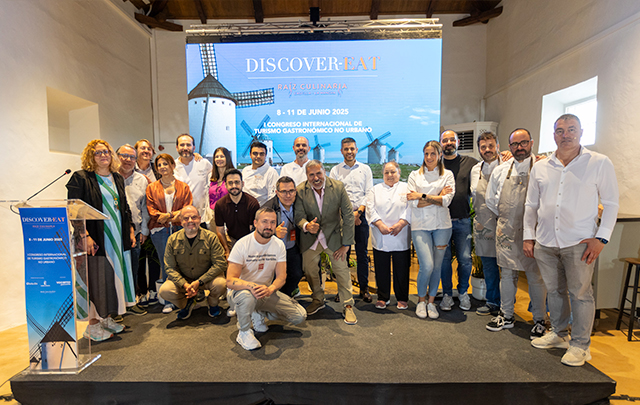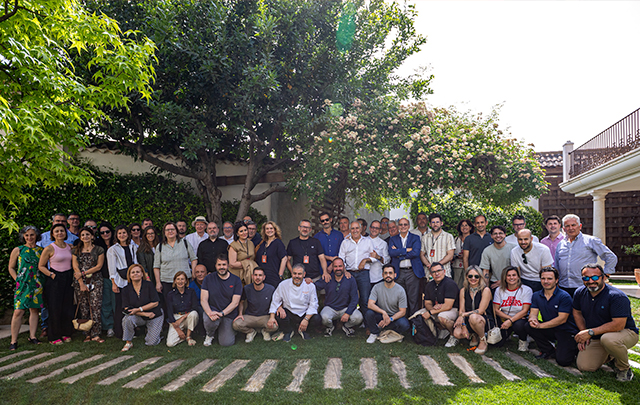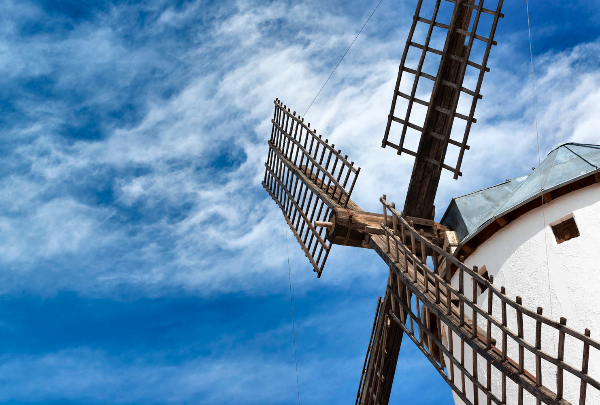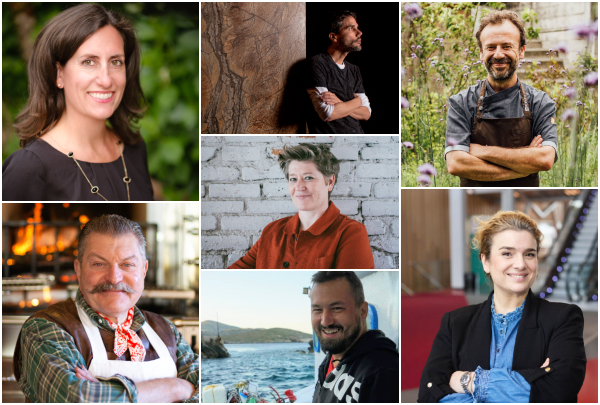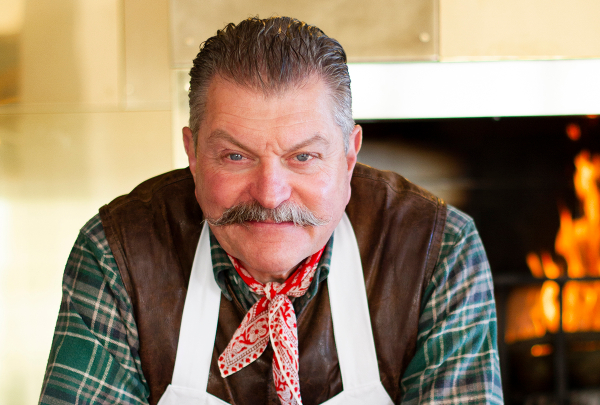News
Rural gastronomic tourism demands greater visibility because 'being at the source is not being far away'.
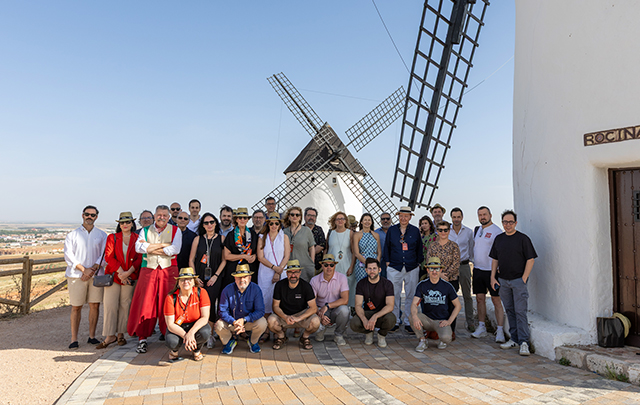
On the second day of Discover-Eat, a large group of rural chefs gathered in Alcázar de San Juan — living examples of the impact that gastronomy can have on a region's visibility. Other international destinations were also visited and the relationship between the public and private sectors in developing non-urban gastronomic tourism was discussed.
Chef Nacho Manzano of the Casa Marcial*** restaurant in the Asturian municipality of Arriondas, 'where there are more cows than inhabitants', firmly believes in gastronomy's ability to attract tourists: 'People will travel miles to eat, whether you offer traditional or avant-garde cuisine. If you do it well, they will always come looking for you'. He defined the value of a rural restaurant for its region as ‘incalculable, not only for the promotion it brings, but also for slowing down depopulation, strengthening the local community, and cultural regeneration’. David Yárnoz, chef at El Molino de Urdániz** in Navarre, explained that he decided to stay in the village and take over the family restaurant 'because of the personality you develop in your region, based on the identity it gives you'. He recalled that 'with the first star, we experienced a change in clientele that initially threw us off balance; the second has made us a destination'.
Another roundtable discussion examined the cases of Sigüenza, Tomelloso, Baeza and the neighbouring Portuguese town of Reguengos de Monsaraz, all of which are must-visit destinations on the Iberian Peninsula. These destinations were represented at Discover-Eat by four Michelin-starred chefs. According to Rubén Sánchez Camacho, the chef at Restaurante Epílogo* in Tomelloso, the allure of restaurants in rural areas is undeniable. “In 2017, I closed the restaurant in Daimiel and it disappeared from the guides. At Epílogo, we serve La Mancha cuisine that invites you to discover the area, which is why Tomelloso has become a destination,' he said. Juan Carlos García, chef at Vandelvira*, said that in Baeza, 'we have noticed a significant increase in tourism, from 1.78 to 3.30 overnight stays per visitor in 2024, thanks to gastronomy. This has contributed to rural development and generated new business opportunities.'
Enrique Pérez, chef at El Doncel* in Sigüenza, believes it has helped to 'deseasonalise tourism in our area' and is optimistic about the future of rural cuisine because it 'promotes the growth of small producers who would otherwise disappear'. Carlos Teixeira, chef at Herdade do Esporão* in Reguengos de Monsaraz, Portugal, agrees that the key lies in valuing local resources. He recognises that, unlike in Spain, Portugal has learned not to promote the same products, but to celebrate local wealth.
The rustic elegance of luxury
In the case of Dario Cecchini, the owner of Antica Macelleria Cecchini in the Italian town of Panzano in Chianti, it is his work as a butcher that has put his small corner of Tuscany on the world map. “I am the last of my generation to stay there, and I came back unwillingly because of family circumstances. Now my barber says I have to take care of myself because I represent the village," said this "responsible butcher", laughing. "I raise the animals with the respect and gratitude they deserve." Twenty years ago, he opened 'a space for the community, inspired by the Renaissance concept, where I offer the same menu to everyone at the same price', and he now receives around 2,000 bookings a week.
April Cullom, CEO of '5 Sentidos Private Tours', a company that promotes Spain's unique local characteristics to the North American market, said that 'luxury is no longer material; it is a rustic elegance that offers exclusive experiences that few have access to'. Her company offers experiences that cannot be found on the internet and satisfy the culinary curiosity of its customers. "We are like art curators, inviting you to travel with your senses. Our customers like to experience the history of their favourite ingredients first-hand, such as the rumbling of tuna in a Barbate trap," she said. In the age of ultra-personalisation, they focus on achieving the element of surprise that makes customers feel like VIPs.
In her presentation, Elise Botiveau, the French ambassador to the World Food Travel Association, highlighted that 'France used to be a leader in gastronomic tourism, but it is no longer so. It has a great history and all the ingredients to become so again, but it faces major challenges, particularly in promoting its rural environment. These include a lack of investment, labour shortages, low digital literacy, and highly fragmented governance,' she warned. She also revealed that the national plan Horizon 2024 includes a chapter on the necessary revitalisation of rural areas, the strengthening of agriculture, and the decentralisation and greater inclusivity of tourism.
Collaboration between the administration and the private sector
The Mayor of Alcázar de San Juan, Rosa Melchor, invited those present to discover the region's rich gastronomic heritage and its many Quixotes and Sancho Panzas, before giving the floor to Ana Isabel Fernández Samper, the Director General of Tourism, Trade and Crafts of the Regional Government of Castilla-La Mancha. She cited the Raíz Culinaria initiative developed by her government, in which gastronomy is the strategic pillar for promoting the region and bringing people together. She invited all administrations to commit to public policies, especially those aimed at encouraging local entrepreneurs and the self-employed. Rosa Vañó, the commercial director of Castillo de Canena, said that institutional support had led Jaén 'to become one of the great Spanish references for how a province can reinvent itself. Our Provincial Council has set the roadmap and we companies have been able to trust and be patient,' she said.
Lucie Lefèvre, the local coordinator for Bordeaux in the Great Wine Capitals Global Network, provided another valid example. 'Bordeaux is a region famous for wine, where other industries must live up to expectations. It is a great challenge that forces us to work as a community and help small businesses give their best," she acknowledged, citing the annual "Best Of Wine Tourism" awards as a useful initiative that has promoted excellence in the region. Sitting at the same table, Almudena González Gutiérrez de León, a professor of tourism and hotel law, as well as an expert in regenerative tourism destinations at Saxion University of Applied Sciences in the Netherlands, emphasised the important role of universities. She explained that their impartiality fosters partnerships between the public and private sectors, and contributes to monitoring the process, transferring knowledge between different disciplines and encouraging talent retention.

